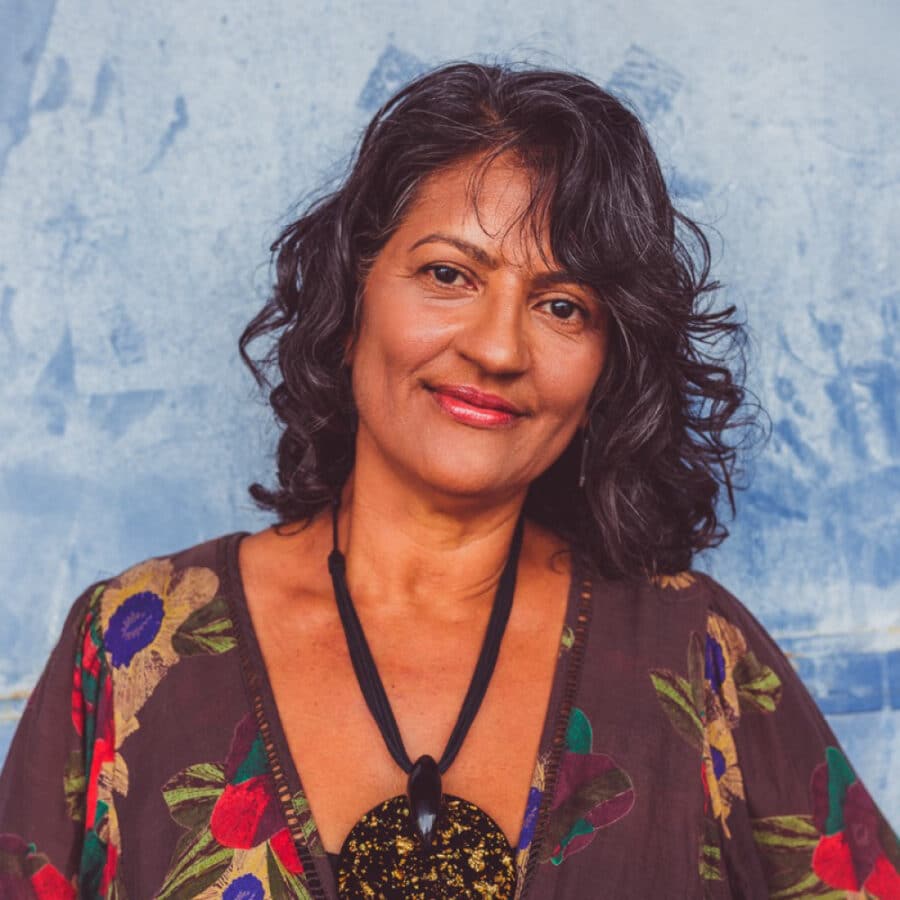Solid-waste management, gender, climate change, action-research, participatory methodologies, advocacy and policy analysis, popular education, participatory platforms
Dr Sonia Dias is a leading global expert on inclusive waste management systems. An action research and popular education specialist, her work focuses on climate change, women’s empowerment and occupational-health in the waste sector. She has led a number of major projects in Brazil – Gender and Waste tackling gender inequalities waste pickers face, Cuidar Project and CataSaúde Viraliza focusing on health issues and climate change impact mapping in the waste picker sector across Brazil. Her current focus is near-real-time monitoring of climate impacts on waste-picker cooperatives in six cities in Brazil.
She started in the solid-waste field in 1985 as a municipal public officer, where she worked to integrate the social aspects into the technical planning of waste collection and recycling in Belo Horizonte. The Waste and Citizenship social activism that Sonia was involved in led to the creation of multi-stakeholder forums at local, sub-national and national levels. She is a core-group member of the Observatory for Inclusive Recycling in Brazil. She is the coordinator of the Circular Economy Thematic Chamber of Brazil’s National Climate Change Forum, and sits on the Municipal Adaptation and Eco-efficiency Committee of the city of Belo Horizonte.
At a global level, Sonia has collaborated with Habitat III as the policy unit expert working on the New Urban Agenda. She serves on numerous advisory boards including the World Business Council for Sustainable Development, End Plastic Pollution International Collaborative (EPPIC), the Circulate Initiative Responsible Sourcing, Systemiq’s Living Income Study and Pimp My Carroça. She has taught at the Gender and Green Jobs Academies at the ILO’s International Training Centre. She has served as Latin American representative to the Collaborative Working Group on Solid Waste Management in Low and Middle-Income Countries.
For her work as city officer in Belo Horizonte, Sonia was awarded ICLEI’s Local Initiatives Award 2000.
Sonia has a PhD in political science and a master’s degree in human geography both from the Federal University of Minas Gerais. She has a specialization in solid waste management from the University of Kitakyushu, Japan. She was nominated as an Eisenhower Fellow (2007) and a fellow of the Japanese International Cooperation Agency (1995).
Select Publications
-
Journal Article
Dias, S., Anantharaman, M., Hobson, K. and Greene, M. 2025. "Everyday Circularities: Perspectives from the Global South." Consumption and Society (published online ahead of print), pp. 1-9.
Read More
-
Journal Article
Dias, S.M., Castán Broto, V., Cypriano, B., Ogando, A.C. and Gonçalves, J. 2024. "The Case for a Climate Bonus: Waste Pickers’ Perceptions of Climate Change in Minas Gerais." Environment and Urbanization, Vol. 36, No. 1.
Read More
-
Policy Brief
Dias, S.M., Ogando, A.C., Castán Broto, V., Cypriano, B. and Gonçalves, J. 2023. "Climate-Change Impacts and Adaptation Strategies: Waste Pickers’ Experiences from Brazil." WIEGO Policy Brief No. 29. Manchester, U.K.: WIEGO.
Read More
-
Book Chapter
Dias, S., Gonçalves, J., Cavé, J. and Warmadewanti, I. 2023. "Expériences d’intégration du secteur informel au formel dans les villes du Sud." In: Collecter et Recycler les Déchets à Hà Nội: Acteurs, Territoires et Matériaux.
Read More
-
Book Chapter
Dias, S.M. 2023. "Waste Management and Development." In: Clark, M. and Zhao, X. (Eds.), Encyclopedia of Development. Cheltenham, UK: Elgar.
Read More
-
Project Report
Tsakona, M., Ruceska, I., Dias, S. and Khaled, D. 2022. "A Seat at a Table: The Role of the Informal Recycling Sector in Plastic Pollution Reduction, and Recommended Policy Changes." GRID-Arendal.
Read More
-
Project Report
Dias, S.M. and Ogando, A.C. 2022. "Building Resilience in Times of Crisis: The Waste and Citizenship Forum Belo Horizonte, Brazil." UCLG: Gold VI Report on Pathways to Urban and Territorial.
Read More
-
Resource Document
Dias, S., Abussafy, R. and Gonçalves, J. 2022. “Inclusive Recycling in Waste Picker Cooperatives in Brazil: Impacts of COVID-19 Comparative Analysis 2020-2021”. WIEGO Resource Document No. 24. Manchester, UK: WIEGO.
Read More
-
Statistical Brief
Bouvier, M., and Dias, S.M. 2021. “Waste Pickers in Brazil: A Statistical Profile”. WIEGO Statistical Brief No. 29. Manchester, U.K.: WIEGO.
Read More
-
Book Chapter
Dias, S.M. and Ogando, A.C. 2019. "Waste Cooperatives in Brazil: Exploring Links Between Cooperative Ideals and Raising Gender Awareness." In: Roelants, B., Hyungsik, E., Esim, S. and Novkovic, S. (Eds.), Cooperatives and the World of Work, pp. 115-129. Routledge.
Read More
-
Journal Article
Dias, S. 2016. "Waste Pickers and Cities." Environment & Urbanization, Vol. 28, No. 2.
Read More
-
Research Report
Dias, S. and Samson, M. 2016. "Informal Economy Monitoring Study Sector Report: Waste Pickers." Cambridge, MA and Manchester, UK: WIEGO.
Read More
Op-Eds
-
Blog Post
Dias, S. 2024. Supporting waste pickers in Brazil’s cities: what’s needed and what needs to change?, International Institute for Environment and Development. 18 January.
Read More
-
Blog Post
Dias, S. 2023. Building resilient cities with the resilience of informal workers, International Institute for Environment and Development Blog., 2 October.
Read More
-
Article
Dias, S. 2023. Action Research on Climate Change Highlights the Role of Waste Pickers for Urban Resilience, GGN Newspaper. 6 December.
Read More
-
Blog Post
Dias, S. 2024. Mapping Brazilian waste pickers’ risks and their responses to climate change, International Institute for Environment and Development. 4 January.
Read More
-
Podcast
Dias, S. 2023. Episode 11: Woman in the Informal Economy. Acquathread Podcast by Jenna Jambeck. October.
Read More
